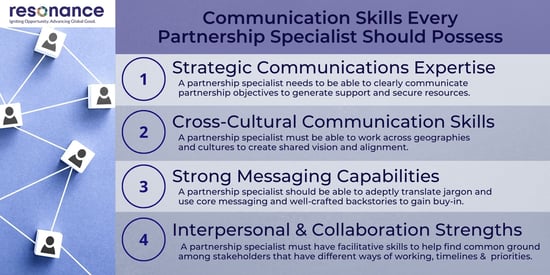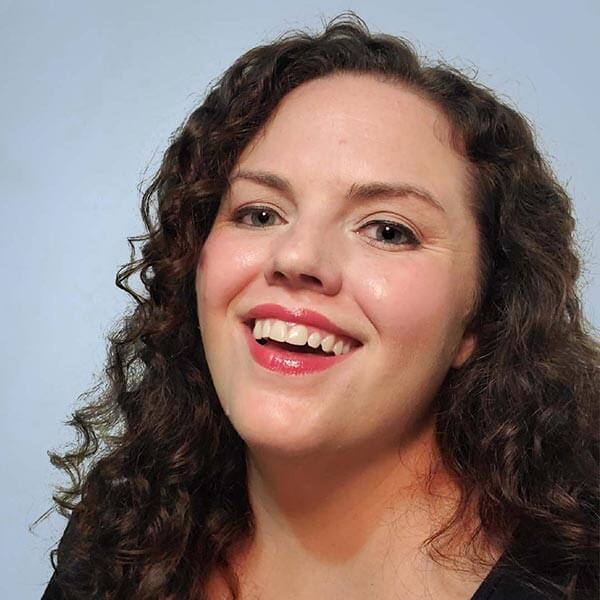You’ve created your sustainability roadmap and you’ve set your targets for 2030. Now it’s time to operationalize. How are you going to achieve your ambitious goals?
You’re tackling complex, systemic issues that impact your ability to strengthen sustainability within your supply chain and operational footprint.
You just can’t go it alone.
It’s time to hire a partnership specialist.
What is a partnership specialist?
Broadly, a partnership specialist is responsible for managing the relationships between your organization and outside entities.
More specifically, this critical team member will strategically help you find partners that have a stake in solving shared problems, identify ways to work together towards common objectives, and hammer out the details of how you’ll work together.
This results-driven field is growing, and the demand for partnership specialists means high performers may have several opportunities. At the same time, given the critical role a partnership specialist will play in your organization, you want to secure the best talent that brings both capabilities and depth to your partnership bench.
With that aim in mind, what kinds of questions should you ask during an interview to make sure you’re hiring the person with the right mix of skills, knowledge, and networks? How can you make sure you’re choosing the candidate that will bring your partnership vision into focus and build partnerships that reflect the scope and scale of your ambitious targets?
Include These Questions In Your “Partnership Specialist” Interview Guide
Although you may have an idea of the kind of competence and experience you are seeking to help your organization build partnership capabilities, here are five important interview questions you should ask your partnership specialist candidates to gauge if they are up to the task.
What is a partnership that you think is doing (or did) interesting, impactful work?
You want someone on your team who is excited about, and maybe a little bit obsessed with, cross-sector partnerships. These candidates will always be on the lookout for interesting alliances that are tackling wicked problems like climate change, increasing smallholder incomes, child labor in supply chains, or the digital divide.
Asking this question helps you assess whether your candidate for is staying attuned to trends in the partnership landscape, and keeping track of new players and innovations.
Why is this important? When your company has decided that it needs to work collaboratively to address a problem it’s facing, you don’t want to start from scratch. You want to be aware of existing partnerships and partnership models that can inspire your next steps. A teammate who has their finger on the partnership pulse will help you move more quickly from the white board to action.
Tell me about a time when you partnered with another organization to achieve common goals and experienced a challenge. What did you learn?
Every partnership brings a unique set of players and circumstances. No matter how promising, partnerships experience challenges and times of uncertainty. A partner can experience a significant strategy shift that calls their participation into question. A lack of alignment between partners can threaten to stall progress. The communities where a partnership operates may experience a humanitarian crisis or conflict.
It’s important for your partnership specialist candidate to talk you through their strategy for navigating choppy partnership waters. How did they adapt? How did they weigh options? How did they continue to tend to relationships and cultivate connection?
It’s equally important for your candidate to talk about what they learned in the process. Do they look back on a challenging moment and see only the obstacle to overcome? Or can they demonstrate that they learned important lessons or developed new tools that will serve their future partnership work?
Prioritize candidates who demonstrate a growth mindset. The best partnership professionals know that learning is a constant and apply their hard-won lessons to the next partnership.
What kinds of communication skills do you think will be critical for this role?
Partnership professionals are, above all else, communicators. When partners are from different sectors or industries, it can often feel like they are speaking a different language.

A partnership specialist needs to be able to clearly communicate partnership objectives to generate support and secure resources. They need to be able to work across geographies and cultures to create shared vision and alignment. And they need to be able to translate jargon and find common ground among stakeholders that have different ways of working, timelines, and priorities.
When evaluating communication skills by asking this question, listen for concrete examples of times your candidate served in the role of interlocutor, decoding terms and making the implicit explicit in ways that created mutual understanding among partners and helped drive them towards alignment.
If you were leading the development of a partnership at our company, how would you go about generating internal alignment and buy-in?
When it comes to partnering, your first thoughts are often externally focused. “How can we leverage the strengths and resources of other companies, government partners, and NGOs and get them to buy into our idea? How can we drive a diverse set of players towards alignment?”
Great partnership professionals know that getting internal stakeholders on board is equally important, often challenging, work.
During the candidate’s response to this interview question, listen for indications that they know how to bring other staff along.
Do they appreciate how important it is to consult team members whose day-to-day work will be impacted by the partnership? Do they talk about the importance of consulting the procurement team when a partnership will impact how the company sources materials? Or how critical it is to get the input of the sales team when a partnership will result in changes to the marketing strategy to reach last mile customers more effectively?
An influential partnership specialist should be able demonstrate that they understand how incentives differ across functions and that internal messaging about the partnership should be framed in a way that speaks to the needs and motivations of different teams.
Have you ever advised your team to say "NO" to a partnership opportunity?
Opportunities to partner are plentiful and sustainability teams are under pressure to make things happen quickly. When you have a mile long list of commitments to meet by 2030, it can be tempting to say yes to the first partnership opportunity that comes to your door.
Despite the pressure, it’s critically important to decline opportunities that aren’t closely aligned with your company’s sustainability strategy. These will only burn through resources and distract from finding a better fit.
It’s equally important to be able to tell the difference between a partnership that will make a big splash because it sounds good on paper and a partnership that will have a real, measurable impact.
Asking a partnership specialist whether they have ever advised a team to say “no” to a partnership opportunity is a question that does double duty.
It not only helps you assess a candidate’s ability to evaluate opportunities with a great deal of depth, but it allows you to evaluate their problem-solving capabilities when having to pivot under pressure to ultimately deliver.
Listen for phrases in your candidate’s response like “opportunity cost,” “strong alignment with material issues,” “evidence-based decision-making,” and “scale of impact.”
If your candidate does not have an example of a time they said no to a partnership opportunity, listen for other examples of times they encouraged a team to reassess a plan or asked hard questions about an opportunity that others were eager to pursue.
Other Things To Keep In Mind When Seeking An Ideal Partnership Specialist
- Look for candidates who have seen active partnerships up close. Ideas can sound good in a boardroom but fall flat in the real world. Bring someone on board who has on-the-ground experience that helps them challenge assumptions made during partnership design and anticipate logistical challenges.
- Resonance cofounder Steve Schmida has written extensively on building a culture of partnership. In his recent book, Partner with Purpose, he offers insights on cultivating teams of cross-sector partnership professionals, emphasizing the need for partnership specialists to bring additional soft skills to the table. Developing questions that help you discern a candidate’s level of empathy, authenticity, open-mindedness, and contextual intelligence will help you assess the extent to which they may be ideal in leading and working in partnerships that include different people, cultures, and lived experiences.
- Don't be afraid to take a hard look at candidates who have worked in an industry that is different from your own. Sector knowledge and relationships are key, but the best partnership specialists will know how to leverage the expertise and networks of others on the team. Insights about how other sectors are using partnerships to tackle sustainability challenges can help generate innovative ideas and surface unconventional partnership opportunities. You want to ask questions that will illuminate transferability of capabilities and the ability to spot and adapt fresh insights and approaches.
-
Assess whether you think a candidate for your partnership specialist position could easily “walk in the shoes” of a potential partner. An effective hire in this role should be able to articulate the various general profiles of potential partners – be they private sector companies, entrepreneurs, catalyst organizations like USAID, NGOs, universities, and others.
But one step further, you want your newly hired partnership specialist to be able to discern and evaluate the goals, needs, aspirations, values, positions, and capacity of potential partners to see where there are overlapping and complementary opportunities in working together. Discern through conversations about prior experiences the degree to which a candidate highlights some of this nuanced information gathering, layered with some degree of organizational empathy skillset, and how it may have contributed to partnership decisions and collaboration.
- Look for a candidate’s ability to exhibit solid active listening skills, which will be key in both identifying potential partnerships, but also in building relational rapport central to developing and driving partnership initiatives and activities. In fact, use your interview to simultaneously assess a candidate on his or her experience, skills, and capabilities to carry out the role and specific responsibilities and functions of a partnership expert, while looking for cues they can be active listeners when you are speaking or explaining key information about your company or organization, and the role.
If your organization is looking to hire a partnership specialist and you would like more advice about the process or what to look for, or if you would like to explore working with Resonance to help you build, expand, or strengthen pre-collaborative and cross-sector partnerships, reach out to Resonance to learn more.
Editor’s Note: This post has been updated for accuracy and current best practices.



